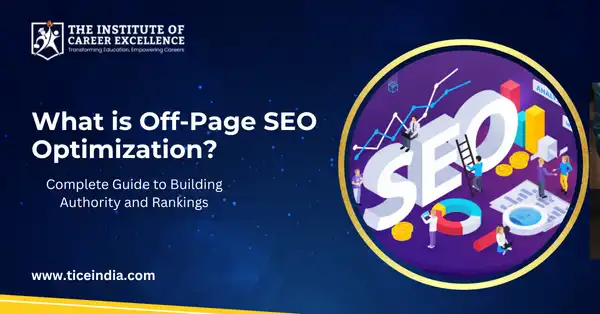
Posted On: July 14, 2025
How to Do Keyword Research for SEO: Complete 2025 Guide
What if I told you that 92.96% of pages get zero traffic from Google? That's a staggering statistic that reveals why so many websites struggle to gain visibility online. The difference between websites that thrive and those that remain invisible often comes down to one critical skill that most business owners completely overlook.
Over the past 10 years in digital marketing, I’ve seen many businesses go from being invisible online to becoming successful—all by focusing on one key practice. While Google looks at over 200 factors to rank websites, one thing stands out as absolutely essential: knowing how to do keyword research for SEO.
Today, I'm going to share the exact system I've used to help hundreds of students and businesses in Kolkata and beyond discover the keywords that drive results. This isn't just theory—it's a proven methodology that turns websites into traffic magnets.

What is keyword research in SEO?
Keyword research is the process of finding, analysing, and selecting search terms that people enter into search engines. Think of it as market research for the digital age—you're essentially eavesdropping on your potential customers' conversations with Google.
The purpose goes beyond just discovering popular queries. It's about uncovering the popularity, ranking difficulty, and search intent behind each term. This intelligence becomes the foundation of your content creation and marketing strategy, directly impacting your brand visibility and traffic generation.
From my experience training students in our digital marketing course in Kolkata, I’ve seen how mastering this one concept can completely transform a business’s online presence.
Why is Keyword Research Important?
Let me share some compelling statistics that highlight why keyword research should be your SEO priority:
- 68% of online experiences begin with a search engine.
- 53.3% of website traffic comes from organic search
- Long-tail keywords account for 70% of all web searches.
- Businesses that blog get 97% more links to their website.
These numbers tell a powerful story. Keyword research drives website traffic by helping your optimised content rank higher in search results. It provides marketing trend insights, revealing current trends and content topics your audience cares about. Most importantly, it enables customer acquisition by converting visitors through targeted, relevant content.
The detailed impact areas include email outreach optimisation, content topic discovery, website optimisation, on-page SEO, backlink building, and content promotion. Every aspect of your digital marketing strategy benefits from solid keyword research.
Elements of Keyword Research
Successful keyword research rests on three fundamental pillars:
1. Relevance
This is about alignment with user intent. Google has become incredibly sophisticated at understanding what users really want. Your content must solve user queries and provide genuine value. Remember, the authority of sources matters more than ever in Google's evaluation process.
2. Authority
Search engines prioritise authoritative sources, especially following Google's emphasis on E-E-A-T (Experience, Expertise, Authority, Trustworthiness). Building authority through quality content, earning backlinks, and generating social shares has become crucial for ranking success.
3. Volume
Monthly Search Volume (MSV) represents the average number of times a keyword is searched per month. However, there's a delicate balance between ranking ability and traffic potential. While high-volume keywords are attractive, they're also highly competitive.
How to Do Keyword Research for SEO: Step-by-Step Guide
Here's my proven 6-step process that I've refined over a decade of digital marketing experience:
Step 1: Brainstorm Business-Relevant Topics
Start by creating 5-10 valuable topic categories that align with your brand and product categories. Consider your target audience's interests, and use a spreadsheet for organisation.
For example, if you're running a digital marketing institute in Kolkata, your topics might include:
- SEO fundamentals
- Social media marketing
- Content marketing strategies
- Digital advertising
- Analytics and reporting
Always put yourself in your buyer's shoes. What questions would they ask? What problems are they trying to solve?
Step 2: Find Potential Keywords for Topics
Once you have your topics, identify related terms and phrases. Use existing analytics data from tools like Google Analytics and HubSpot to understand what's already working.
Create an initial keyword dump—remember, this isn't your final list. You're just gathering raw material for the next steps.
Step 3: Understand Intent-Keyword Relationship
User intent has become a crucial ranking factor. There's a significant difference between informational and transactional intent, and you must match your content to search intent.
Analyse current SERP results and avoid making assumptions based on keyword face value. For instance, someone searching "how to find the best digital marketing course" is likely in the research phase, not ready to purchase immediately.
Step 4: Leverage Keyword Research Tools
Manual research isn't sufficient in today's competitive landscape. Here's where you need to utilise the best free SEO tools and professional options:
- Google Keyword Planner: Best for finding related keywords and Google Ads integration
- Ahrefs: Excellent for competitive analysis with a large database
- SEMrush: All-in-one tool with granular data and advanced features
- Moz Keyword Explorer: Great for keyword prioritisation with easy data presentation
- Ubersuggest: User-friendly and affordable with comprehensive suggestions
The key is learning how to narrow down overwhelming results and focus on opportunities that align with your goals.
Step 5: Create a Mix of Long-tail and Short-tail Keywords
Understanding the difference between these keyword types is crucial:
- Short-tail (Head Terms): 1-3 words, high search volume, high competition, generic intent
- Long-tail Keywords: 3+ words, lower competition, higher conversion rates, specific user intent
Here's a fascinating statistic: long-tail keywords convert 2.5x higher than head keywords. This means there's tremendous opportunity in targeting longer, more specific phrases that your competitors might be overlooking.
Step 6: Analyse Competitor Keywords
Research what your competitors rank for and identify gaps and opportunities. Balance between competitive and realistic keywords, focusing on market share opportunities where you can realistically compete.
Types of Keywords in SEO
Understanding different keyword types helps you build a comprehensive strategy:
1. Seed Keywords
These are basic terms describing your business and serve as the foundation for further research. Examples include "coffee," "chair," or "digital marketing."
2. Long-tail Keywords
These are 3+ word detailed phrases with lower search volume but higher conversion potential. They help you have niche conversations with your audience.
3. Short-tail Keywords
These are 1-3 generic words with high volume but high competition and lower conversion rates.
4. Branded vs. Unbranded Keywords
Branded keywords are specific to your business, while unbranded keywords are generic product/service terms.
5. Competitors' Keywords
These represent a goldmine of topic ideas and can be used as seed keywords for competitive analysis opportunities.
6. Primary vs. Secondary Keywords
Primary keywords are your main topic focus, while secondary keywords are supporting and related terms.
Understanding User Intent in Keyword Research
Modern keyword research in SEO requires understanding four main types of search intent:
1. Informational Keywords
Users seeking information about topics typically start with who, what, where, why, when, and how. These drive traffic through educational content.
2. Navigational Keywords
Users looking for specific pages or websites often do brand/website name searches that present conversion opportunities.
3. Commercial Keywords
Users researching products/services, looking for reviews, deals, and comparisons. Perfect for middle-funnel content.
4. Transactional Keywords
Users ready to purchase, using buyer keywords. These are bottom-funnel, high-value opportunities.
Common Keyword Research Mistakes to Avoid
Through my experience training hundreds of students, I've identified critical mistakes that can sabotage your efforts:
- Ignoring Search Intent: Focusing only on search volume without understanding user purpose
- Not Considering Competition: Failing to analyse the competitive landscape
- Ignoring Local Keywords: Missing geographic search terms and location-specific optimisation
- Not Looking at SERPs: Skipping analysis of current search results
- Targeting Only High-Volume Keywords: Missing better opportunities with lower competition
- Focusing Only on Exact Keywords: Not including related terms and semantic variations
- Overlooking Keyword Difficulty: Ignoring competition levels and targeting unrealistic keywords
Frequently Asked Questions
How do you do SEO keyword research?
Start with topic brainstorming, use keyword research tools, analyse search intent, and create a balanced mix of short-tail and long-tail keywords.
What is the best keyword research technique in SEO?
The most effective approach combines understanding user intent with competitive analysis and focuses on long-tail keywords for better conversion rates.
How to do SEO for a keyword?
Once you've identified your target keywords, optimise your content, meta tags, and headers, and ensure your content thoroughly addresses user intent.
How do I find my SEO keywords?
Use a combination of brainstorming, competitor analysis, and keyword research tools to identify opportunities that align with your business goals.
Conclusion and Takeaways
Keyword research isn't just about finding popular search terms—it's about understanding your audience, creating valuable content, and building sustainable organic growth. The statistics and strategies I've shared demonstrate that opportunities exist for businesses of all sizes, especially those willing to focus on long-tail keywords and user intent.
Remember, successful keyword research for SEO is an ongoing process, not a one-time task. The search landscape continues evolving, and your strategy should adapt accordingly. Focus on creating content that genuinely helps your audience, and the rankings will follow.
At TICE (The Institute of Career Excellence), we've helped countless students and businesses master these techniques through our comprehensive training programs. As someone who's spent over a decade bridging the gap between academic knowledge and industry requirements, I can tell you that understanding keyword research is one of the most valuable skills you can develop in today's digital landscape.
Tags
Latest Posts
-

10 Highest-Paid Digital Marketing Skills in Demand in 2026
-

Short-Term Website Development Courses That Lead to Jobs
-

Why India’s Tech Industry Struggles to Produce Visionary Leaders: A Skills Gap Perspective
-

Best Certification Courses After 12th for a Career in IT
-

What is Off-Page SEO Optimization? Complete Guide to Building Authority and Rankings
Similar Posts
-

10 Highest-Paid Digital Marketing Skills in Demand in 2026
-

Short-Term Website Development Courses That Lead to Jobs
-

Why India’s Tech Industry Struggles to Produce Visionary Leaders: A Skills Gap Perspective
-

What is Off-Page SEO Optimization? Complete Guide to Building Authority and Rankings
-

What is On-Page SEO? Techniques, Factors, Elements



